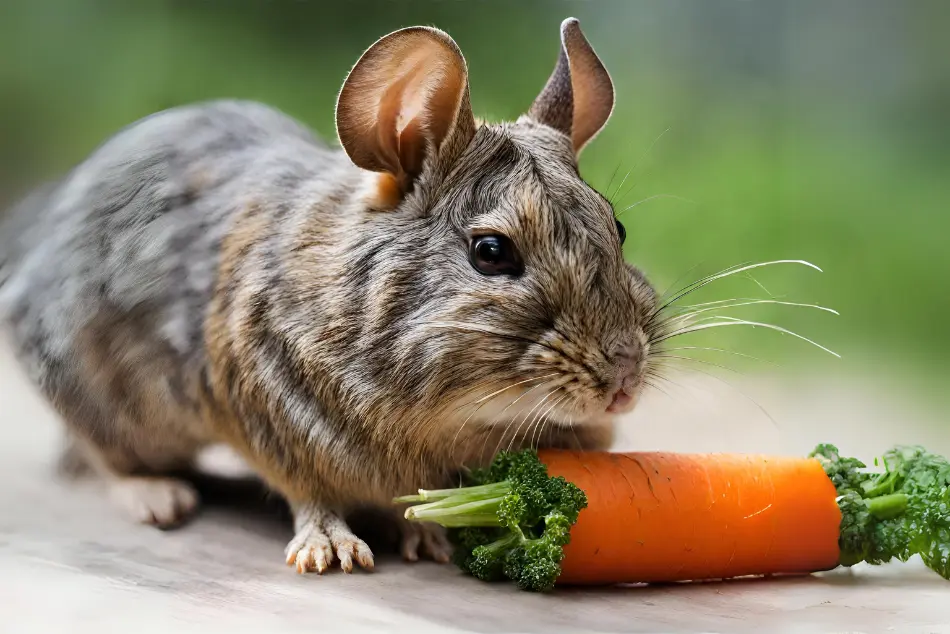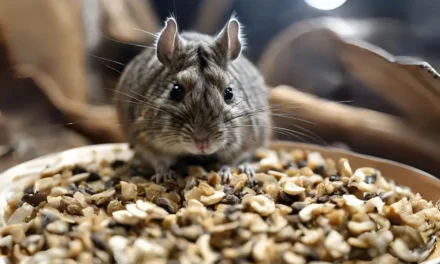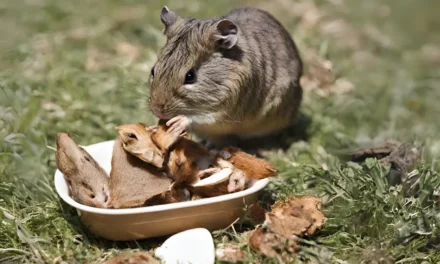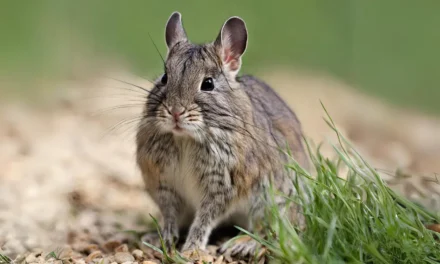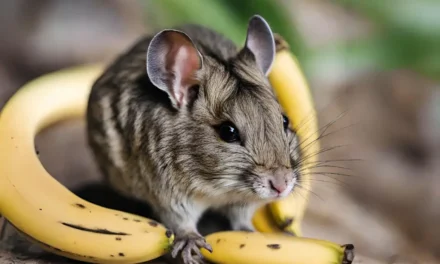Can degus eat carrots? It’s a question that often pops up when considering the diet of these delightful rodents. As a degu owner, you want the best for your furry pals, ensuring their diet not only satisfies their taste buds but also supports their health. Carrots, with their vibrant color and crunch, seem like a healthy choice, but are they suitable for these small creatures? Let’s delve into the world of degus and their dietary needs to uncover whether carrots make a safe addition to their menu.
Nutritional Content of Carrots
Carrots pack a punch when it comes to nutrition for degus. These vibrant veggies are rich in beta-carotene, a precursor to vitamin A, essential for degu eye health. Additionally, they contain vitamins C, K, and various B vitamins. Minerals like potassium and fiber make carrots a wholesome addition to your pet’s diet.
Considered a nutritional powerhouse, carrots offer a spectrum of health benefits for degus. Their antioxidant properties aid in boosting the immune system, while the high fiber content supports digestive health. The crunchiness of carrots also promotes dental health by helping wear down degu continuously growing teeth.
Can Degus Safely Consume Carrots?
Yes, but with certain caveats. Carrots are nutritious and contain vitamins beneficial to degus, such as vitamin A, which is crucial for their eye health. However, moderation is key.
Carrots are high in natural sugars and should be offered sparingly to prevent health issues like obesity or diabetes in degus.
Transitioning to another important point, it’s vital to note that fresh, washed, and peeled carrots are the way to go. Avoid giving degus baby carrots or those treated with any additives or preservatives, as these could be harmful to their delicate digestive systems. Always cut carrots into small, manageable pieces to prevent choking hazards.
Incorporating variety into your degu diet ensures they receive a well-rounded nutritional intake. Alongside offering carrots occasionally, consider other safe veggies like bell peppers, broccoli, and leafy greens such as kale or spinach. These options provide essential vitamins and minerals without overloading your furry friend with excess sugars.
people also read this trending article: Can Degus Eat Rabbit Food
How to Feed Carrots to Degu
Introducing carrots to your degu diet requires a gentle approach. Begin by offering small pieces as occasional treats. Gradually increase the frequency while ensuring moderation to avoid potential health issues linked to excessive sugar intake.
Common Health Concerns with Vegetables
While vegetables are essential, some carry risks for degus. High sugar content in certain veggies, if consumed excessively, may lead to obesity or diabetes. Understanding these risks helps you make informed choices about your degu diet.
Pesticides on veggies can pose risks to your degu health. Opt for organic or thoroughly wash non-organic vegetables to remove pesticide residues, minimizing potential harm to your pet.
Nutrient Loss in Vegetables
Improper storage and cooking methods can result in nutrient loss in vegetables. Serve fresh and properly stored veggies to ensure your degu reaps maximum nutritional benefits.
Low-Fiber Content in Some Vegetables
Some veggies, while nutritious, might have lower fiber content. Pair them with high-fiber options to maintain your degu digestive health and prevent potential issues like constipation.
Tips for Preparing Vegetables for Your Degu
Preparing veggies for your degu involves a few key steps. Thoroughly washing removes any dirt or chemicals. Removing seeds and stems prevents choking hazards, while chopping into bite-sized pieces makes them easy for your pet to munch on.
Monitoring Your Degu Diet and Weight Gain
Regularly monitor your degu diet to ensure a balanced intake. Keep an eye on their weight to detect any sudden changes, as this could indicate potential health issues.
Feeding Guidelines for Degus
Create a feeding schedule that incorporates a variety of vegetables, ensuring your degu receives a balanced diet. Moderation is crucial to prevent health complications associated with excessive consumption of certain veggies.
Monitoring Weight Gain in Degus
Tracking your degu weight helps in gauging their health. Sudden weight gain or loss might indicate dietary imbalances or underlying health issues, warranting a vet visit.
By focusing on these aspects, you can ensure your degu enjoys a balanced, nutritious diet, promoting their overall health and well-being.
Pros of carrots for Degu:
Nutrient-Rich: Carrots offer essential vitamins like A, C, and K, promoting overall health.
Dental Health: Crunchy carrots assist in wearing down degu teeth, supporting dental hygiene.
Antioxidants:Carrots’ antioxidants bolster the immune system of degus.
Moderate Treat: They can serve as occasional treats, adding variety to the diet.
Digestive Aid: Carrots’ fiber content aids in maintaining healthy digestion.
Cons of carrots for Degu
Sugar Content: High natural sugar levels in carrots might lead to obesity if overfed.
Choking Hazard: Improperly cut carrots can pose choking risks for degus.
Digestive Issues: Excessive carrot intake may cause digestive problems like diarrhea.
Nutrient Imbalance: Overfeeding carrots can imbalance the degu’s overall diet.
Pesticide Risks: Non-organic carrots might carry pesticide residues, potentially harming degus.
Related topics:
Conclusion:
In conclusion, the question “can degus eat carrots?” has a positive answer, but it comes with a cautionary asterisk. Yes, degus can enjoy carrots, but it’s crucial to offer them in moderation. Understanding their dietary needs and ensuring a balanced meal plan is vital for their overall health and well-being. Remember, variety is key, and a diverse diet ensures your degu receives the necessary nutrients without compromising their health.
As a responsible degu owner, you play a pivotal role in maintaining their health through a well-thought-out diet. So, next time you offer your furry friend a crunchy treat, remember the golden rule—moderation is the key to keeping your degu healthy and happy.
FAQs – Can degu eat carrots
How Much Carrot is Safe for Degus?
Stick to tiny pieces about the size of your pinkie nail, once or twice a week. Think of it as a delightful snack, not a dietary staple.
Do I Need to Wash the Carrots Before Giving Them to My Degu?
Always! Give those carrots a thorough rinse under running water to remove any pesticides or dirt that could harm your furry friend.
What Parts of the Carrot Should I Avoid?
The green leafy tops can be a bit rough and high in nitrates for degus. Stick to the juicy orange core.
Is Carrot Better Than Other Vegetables for Degus?
Not necessarily! Celery, romaine lettuce, bell peppers, and broccoli offer more fiber and essential vitamins for balanced degu diets.
How Can I Introduce Carrots to My Degu?
Start with a tiny sliver and see how they react. Some degus might be hesitant at first. You can try mixing it with their regular food or stuffing it with a leafy green they enjoy.
Are There Any Health Concerns with Feeding Degus Carrots?
Too much carrot can cause bloating or upset stomachs. If your degu experiences any digestive issues, stop the carrot feast and consult your veterinarian.
Can Degus Have Carrot Sticks as Treats?
Carrot sticks might be a bit bulky for their tiny mouths. Opt for small, chopped pieces to avoid choking hazards.
Where Can I Find More Information About Degu Diets?
Consult your veterinarian or a qualified pet nutritionist for personalized advice. You can also find excellent resources online from reputable degu care websites and forums.
Should I Share My Carrot Snack with My Degu?
Sharing is caring, but remember, human snacks often have sugars and fats not suitable for degus. Stick to their safe veggie options for crunchy bonding moments.

